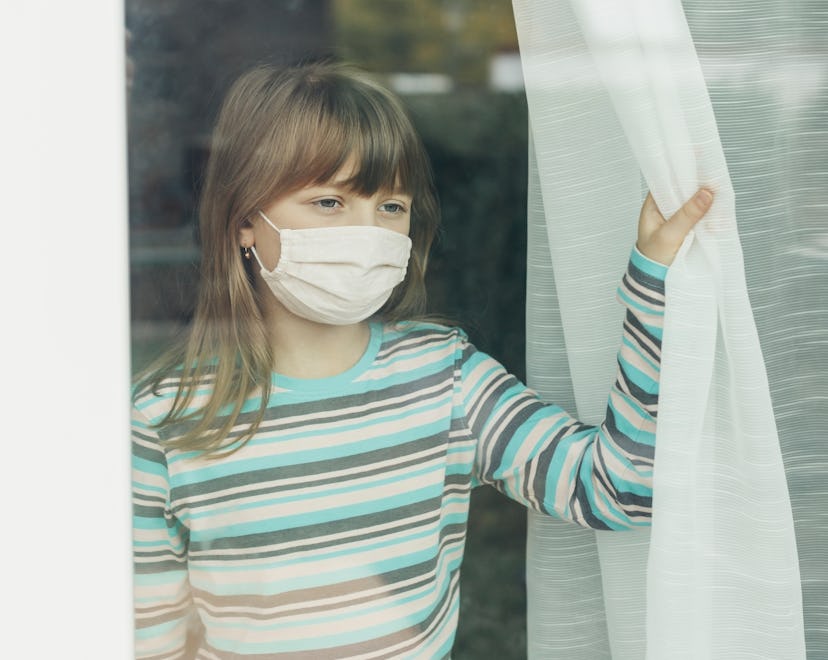Health

If You've Been Exposed To COVID-19, Here's How Long The CDC Says You Should Quarantine
For some, quarantine recommendations just got a whole lot shorter.
On Wednesday, the U.S. Centers for Disease Control and Prevention (CDC) issued new guidelines regarding how individuals exposed to COVID-19 should quarantine. While the CDC's quarantine guidelines still recommend a 14-day period for anyone exposed to COVID-19 as the best option for reducing the virus' spread, the agency noted there are a few instances when a shortened quarantine might be acceptable.
For months, the CDC has recommended that anyone known to have spent at least 15 minutes within six feet of someone confirmed to have COVID-19 stay home in quarantine for 14 days following their last contact with the infected individual. And while the CDC has moved to expound upon its quarantine guidelines, that overall 14-day recommendation hasn't changed.
"CDC continues to recommend quarantine for 14 days to more completely reduce the risk of spread of COVID-19," the agency said in its update Wednesday, noting that any quarantine shorter than 14 days came with the possibility of increasing the virus' spread.
So What Has Changed In The Guidelines?
While the CDC has continued to recommend a quarantine period of 14 days, it announced two instances in which a shorter quarantine could be acceptable. According to the CDC, individuals exposed to COVID-19 can end their quarantine after 10 days if they did not receive a COVID-19 test and have experienced no symptoms. In ending a quarantine after 10 days, an individual has an estimated 1% to 10% risk of transmitting COVID-19 to others, the CDC noted.
Additionally, if an individual in quarantine has received a negative COVID-19 diagnostic specimen test and reported no symptoms, they can end their quarantine after seven days, the CDC said. In this instance, the CDC reported an individual's estimated transmission risk post quarantine was between 5% and 12%.
Still, the CDC was quick to emphasize Wednesday that while shortening quarantine periods may increase the public's willingness to adhere to them, it would also require public health experts to be alert for potential negative impacts such as an increase in post-quarantine transmission rates. "Any option to shorten quarantine risks being less effective than the currently recommended 14-day quarantine," the CDC said.
If 14 Days Is Best, Why Update?
The CDC has recognized that for some people a 14-day quarantine is easier said than done as it can "impose personal burdens that may affect physical and mental health" and "cause economic hardship." The agency said the burdens and hardships of having to quarantine have consequently resulted in many infected individuals declining to alert contact tracers to who their recent close contacts were.
“In a situation where cases are rising, that means that the number of contacts are rising, and the number of people who require quarantine is rising," Dr. Henry Walke, the CDC's Covid incident manager, told CNBC. "That’s a lot of burden, not just on the people who have to quarantine, but also on public health. We believe that if we can reduce the burden a little bit, accepting that it comes at a small cost, we make greater compliance overall with people.”
On Wednesday, the CDC said it hoped reducing the length of quarantine would reduce the burden it might have and consequently increase community compliance. According to the John Hopkins Coronavirus Resource Center, the United States has seen more than 13.7 million cases of COVID-19 and more than 272,000 deaths.
If you think you’re showing symptoms of coronavirus, which include fever, shortness of breath, and cough, call your doctor before going to get tested. If you’re anxious about the virus’s spread in your community, visit the CDC for up-to-date information and resources, or seek out mental health support. You can find all of Romper’s parents + coronavirus coverage here.